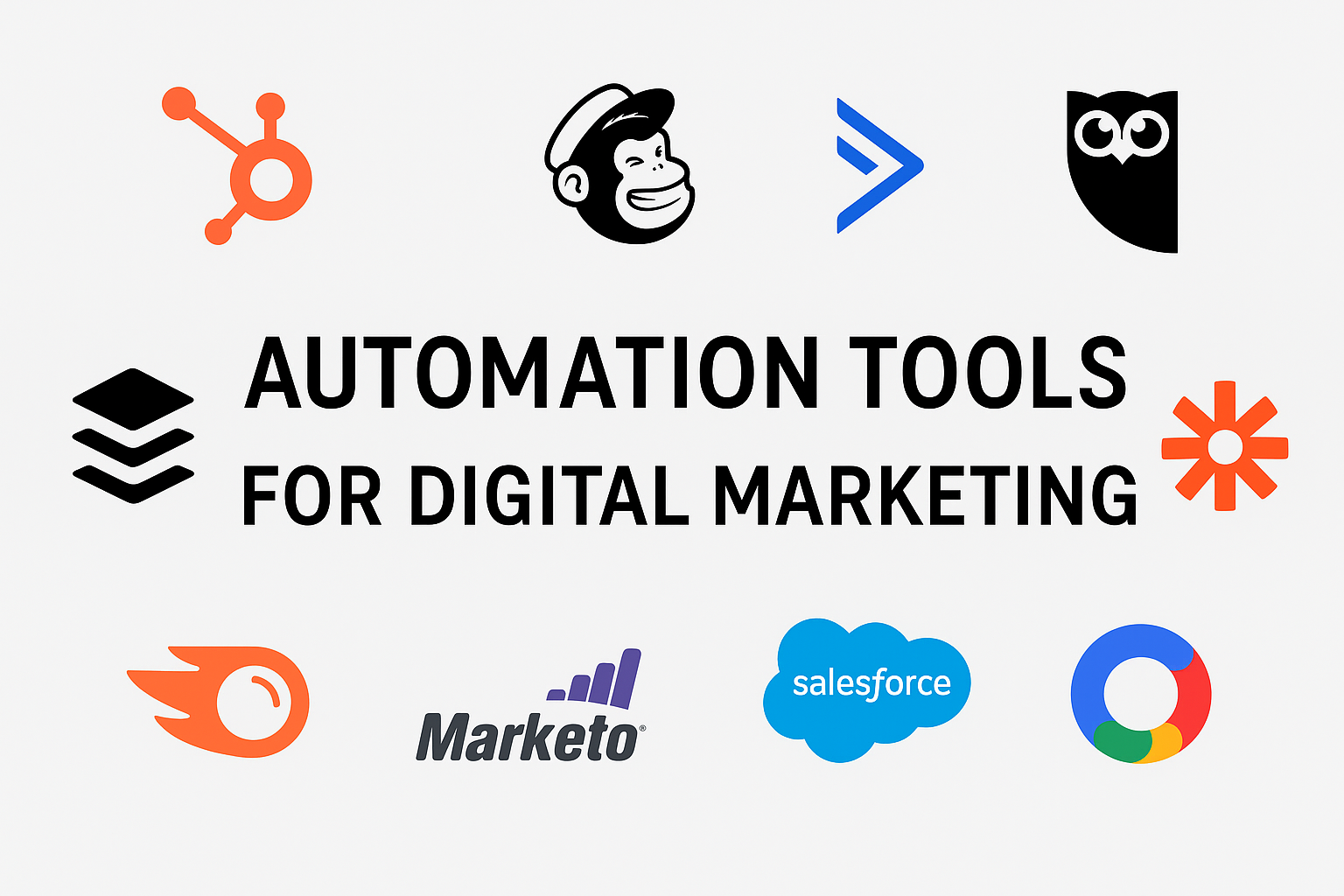Digital marketing automation has completely changed the way businesses handle their marketing campaigns.
Instead of spending hours on repetitive tasks such as sending emails, posting on social media, or analyzing performance, automation tools simplify and streamline these processes.
These platforms handle scheduling, track customer behavior, personalize content, and manage leads without requiring constant manual input.
The right automation tool allows marketers to focus on strategic decisions rather than operational work, improving productivity and overall ROI.
With numerous options available, selecting the right solution can be a daunting task.
Each tool offers unique features, integrations, and benefits, so understanding what works for your business is critical.
Below, we’ll explore the best tools for digital marketing automation and why they are essential for optimizing campaigns, engaging customers effectively, and achieving better business results.
What are automations in digital marketing?
In digital marketing, automation means using specialized software and tools to handle repetitive marketing tasks without manual effort.
These tasks include sending personalized emails, scheduling social media posts, nurturing leads, segmenting audiences, and tracking analytics without manual effort.
Automation helps businesses save time, maintain consistency, and deliver more targeted, timely campaigns for better engagement and conversions.
Top Digital Marketing Automation Tools and Why You Need Them
Here are the top digital marketing automation tools that help streamline tasks, improve efficiency, and maximize ROI. Find out why each tool is essential for business growth.
1. HubSpot
HubSpot is a leading marketing automation platform that provides an all-in-one solution for businesses of all sizes.
It includes email marketing, CRM, social media scheduling, lead nurturing, and reporting features in one dashboard.
Automated workflows, audience segmentation, and personalized messaging make campaigns more effective and targeted.
HubSpot tracks every customer interaction across multiple touchpoints, helping businesses understand user behavior better.
The analytics dashboard offers actionable insights to improve strategies based on real-time data.
Integration with third-party apps ensures flexibility for complex marketing setups.
Why use HubSpot?
HubSpot is perfect for businesses looking for a complete marketing solution in one place, reducing the need for multiple tools and improving team efficiency.
Its powerful automation and reporting features help save time, increase engagement, and boost ROI while keeping marketing efforts organized and scalable.
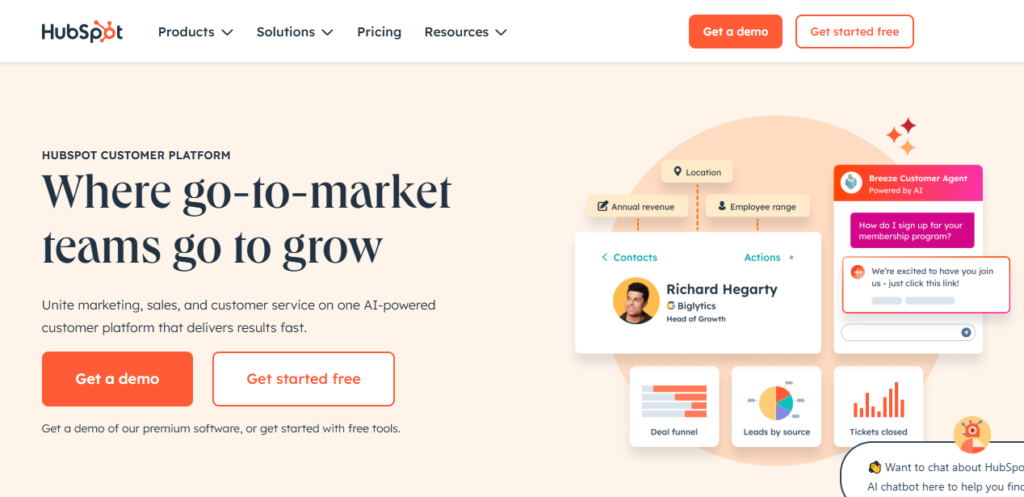
2. Mailchimp
Mailchimp is a highly popular tool for email marketing automation, widely used by small and medium businesses.
It started as an email platform but now includes landing pages, social media posting, and ad management.
Businesses can create automated workflows for tasks like welcome emails, abandoned cart reminders, and personalized recommendations, improving user experience.
Advanced segmentation ensures messages reach the right audience, boosting open and click rates.
The platform provides in-depth campaign reports that make tracking results easy and effective.
Its clean interface and affordable pricing make it ideal for beginners and small businesses.
Why use Mailchimp?
Mailchimp simplifies email marketing while offering automation, analytics, and personalization features without complexity.
It allows businesses to engage audiences effectively, reduce manual work, and maintain professional communication effortlessly.
3. ActiveCampaign
ActiveCampaign is a powerful tool for businesses that prioritize advanced personalization.
It combines email marketing, CRM, and automation into one platform, allowing marketers to create highly targeted customer journeys.
The tool supports conditional triggers and detailed workflows, ensuring every user receives relevant content at the right stage.
Features like lead scoring help prioritize prospects and improve sales follow-ups.
ActiveCampaign integrates with numerous apps, and its reporting tools provide detailed performance data.
Why use ActiveCampaign?
This tool is ideal for businesses that want more than basic email automation.
Its ability to create complex workflows, personalize at scale, and integrate sales processes makes it a strong choice for companies aiming to improve engagement and conversions.
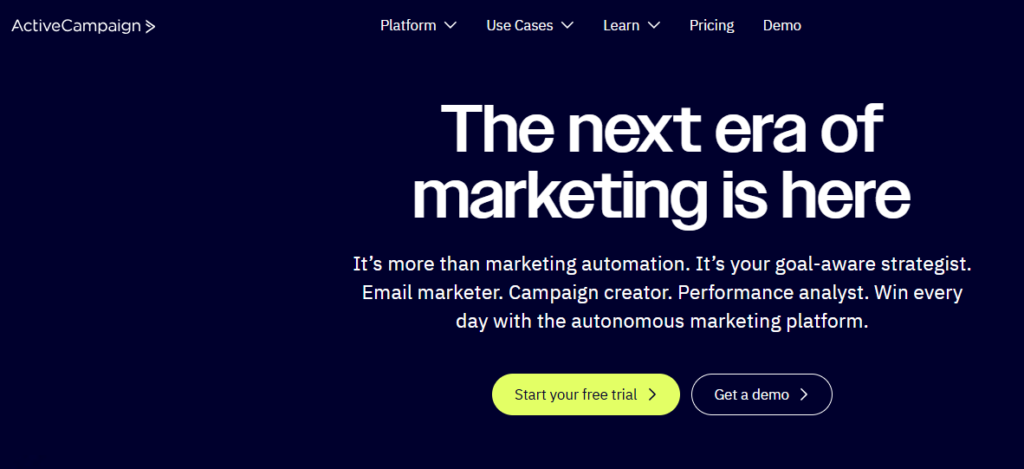
4. Hootsuite
Hootsuite is one of the most widely used social media automation platforms, designed to manage multiple accounts in one place.
It enables businesses to schedule posts in advance across platforms like Facebook, Instagram, Twitter, and LinkedIn, ensuring consistent brand visibility.
The platform includes monitoring tools that track comments, mentions, and messages, making engagement easier.
Detailed analytics help measure the success of campaigns and identify what content performs best.
Teams can collaborate within Hootsuite by assigning roles and managing approval workflows, making it suitable for organizations with multiple marketers.
Why use Hootsuite?
Hootsuite simplifies social media management, saves time, and ensures a consistent posting schedule.
It also improves audience interaction and provides actionable insights for better content strategies.
5. Buffer
Buffer is a user-friendly social media automation tool known for its simplicity and efficiency.
It allows businesses to schedule posts for multiple platforms and provides recommendations for optimal posting times.
The tool offers analytics to track engagement and performance, helping marketers identify effective strategies.
Buffer supports collaboration, making it easy for teams to plan, review, and approve content before publishing.
It also provides a clean interface, making it ideal for beginners and small businesses.
Why use Buffer?
Buffer streamlines social media posting, improves efficiency, and ensures brand consistency across channels.
It is especially useful for businesses that want an affordable and straightforward solution without unnecessary complexity.

6. Zapier
Zapier stands out as an automation tool that connects different apps to streamline workflows.
It allows marketers to link multiple tools and automate tasks without coding.
For instance, leads captured through a form can be automatically added to a CRM or email list.
Zapier supports thousands of apps, making it extremely versatile for businesses using diverse software.
Multi-step “Zaps” manage complex workflows efficiently and help minimize human errors.
Why use Zapier?
Zapier eliminates repetitive manual tasks, saves time, and ensures data flows seamlessly between systems.
It is perfect for businesses seeking efficiency and integration across different marketing platforms without requiring technical skills.
7. SEMrush
SEMrush is a comprehensive tool for businesses focused on SEO and content marketing.
It automates keyword tracking, site audits, and competitor analysis, giving businesses a strong advantage in search visibility.
The tool also offers backlink monitoring and rank tracking, reducing the need for constant manual checks.
SEMrush offers practical insights to enhance content strategies and refine marketing campaigns.
In addition, it includes tools for social media posting and ad management, making it a complete marketing solution.
Why use SEMrush?
SEMrush saves time on SEO-related tasks while delivering valuable insights that improve organic traffic and rankings. It is an essential tool for businesses aiming to stay competitive in search results and strengthen overall marketing performance.
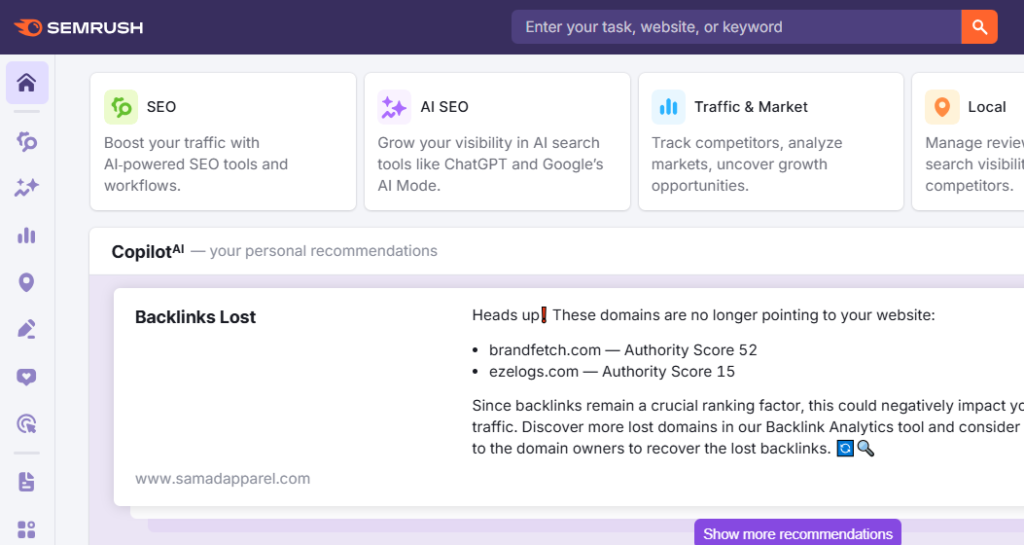
8. Marketo
Marketo is an advanced marketing automation platform built for medium- to large-sized businesses.
It provides powerful features for email campaigns, lead tracking, analytics, and account-based marketing.
Marketo supports complex workflows for personalized customer journeys and integrates well with CRM systems like Salesforce.
Its analytics and reporting capabilities help measure ROI and optimize strategies effectively.
Why use Marketo?
Marketo is perfect for businesses requiring enterprise-level solutions to manage large-scale campaigns.
It enhances efficiency, scalability, and personalization, making it a great choice for companies aiming to deliver targeted experiences across multiple channels.
9. Salesforce Marketing Cloud
Salesforce Marketing Cloud is a powerful solution for businesses that need advanced automation and personalization.
It supports email campaigns, social media management, and customer journey mapping while leveraging AI for predictive analytics.
The platform works seamlessly with Salesforce CRM, providing a unified view of customer data for better targeting.
It also allows multichannel campaigns, improving engagement and conversions.
Why use Salesforce Marketing Cloud?
Salesforce Marketing Cloud is ideal for organizations that prioritize data-driven strategies and scalability.
It offers unmatched personalization capabilities, making it a great choice for large businesses focused on delivering personalized customer experiences.
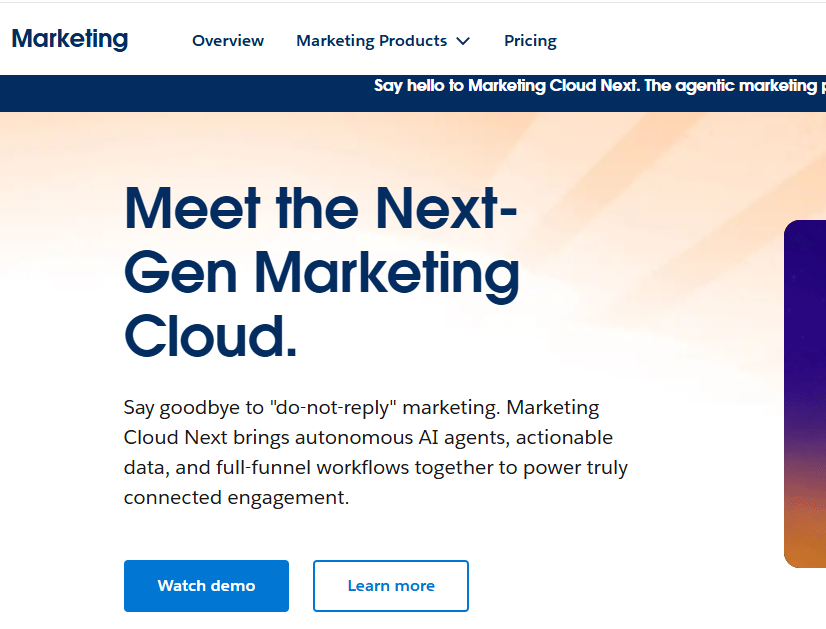
10. Google Marketing Platform
Google Marketing Platform combines tools like Google Ads and Google Analytics to create an integrated advertising and analytics solution.
Businesses can manage ad campaigns, track conversions, and analyze performance from a single platform.
The tool provides advanced targeting and automation features that help optimize budgets and improve ROI.
Integration with other Google services adds flexibility and efficiency for digital campaigns.
Why use Google Marketing Platform?
Google Marketing Platform is essential for businesses running paid campaigns because it simplifies management, reduces manual effort, and provides deep insights for better decision-making. It ensures campaigns are efficient, measurable, and highly targeted.
11. ConvertKit
ConvertKit is a powerful email marketing automation tool designed primarily for creators, bloggers, and small businesses.
It allows you to create automated email sequences, segment your audience, and deliver personalized content to subscribers.
ConvertKit also offers customizable forms, landing pages, and integrations with various platforms, making it easy to capture and nurture leads.
The platform focuses on simplicity and usability while maintaining advanced automation capabilities.
Features like visual automation workflows and tagging help businesses send the right message at the right time without overwhelming complexity.
Why use ConvertKit?
ConvertKit is perfect for content creators and entrepreneurs who need a straightforward yet effective automation tool for building relationships and driving conversions without technical hassle.
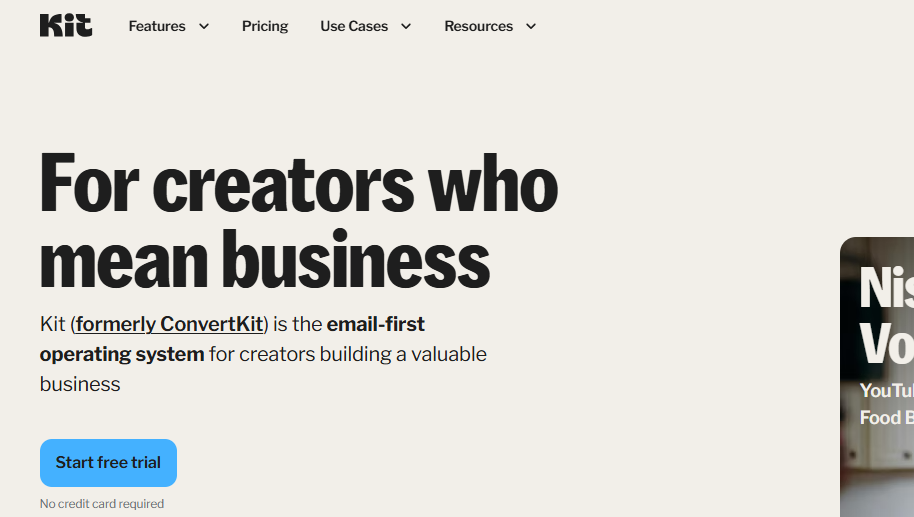
12. Sprout Social
Sprout Social is a social media management and automation tool that helps businesses streamline their social strategies.
It allows scheduling, publishing, and monitoring posts across multiple platforms, ensuring consistent engagement with audiences.
Built-in analytics provide insights into engagement, reach, and audience behavior, helping businesses fine-tune content strategies.
Sprout Social also includes team collaboration features, making it ideal for agencies and businesses with multiple social media managers.
Additionally, its social listening tools help track brand mentions and industry trends.
Why use Sprout Social?
Sprout Social is a great choice for businesses that want more than basic scheduling.
It offers in-depth analytics, audience insights, and collaboration features, making social media management efficient and data-driven.
13. Pardot
Pardot, a B2B marketing automation tool from Salesforce, focuses on lead generation and nurturing.
It includes features such as automated email campaigns, lead scoring, CRM integration, and ROI reporting.
Pardot allows marketers to design complex workflows that guide prospects through the sales funnel effectively.
It also supports advanced segmentation for personalized marketing and integrates seamlessly with Salesforce CRM, ensuring data consistency across marketing and sales.
Why use Pardot?
Pardot is ideal for B2B companies that need powerful lead management and alignment between marketing and sales.
It helps automate complex processes, improve lead quality, and track the complete customer journey.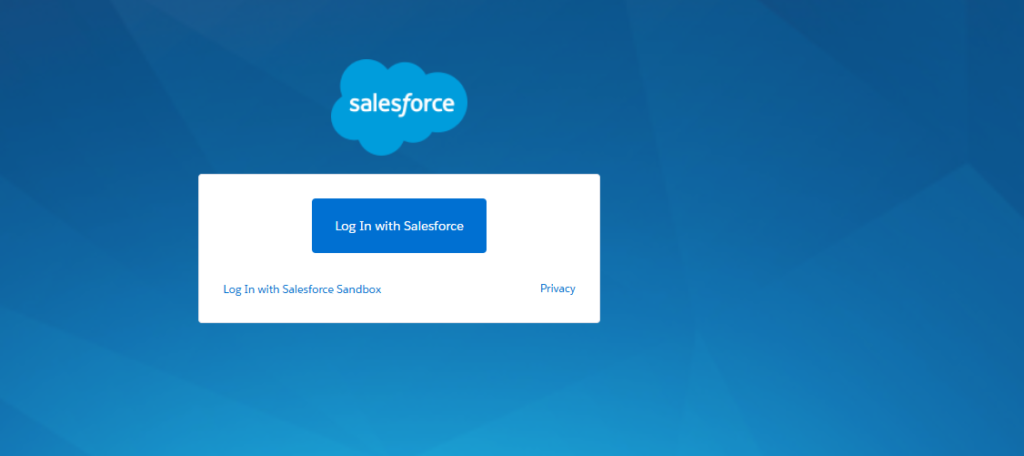
14. CoSchedule
CoSchedule is a marketing automation tool designed to organize content, social media, and projects in one place.
Its marketing calendar helps businesses plan and schedule campaigns across different channels, ensuring consistency and timely execution.
The tool includes features like social media scheduling, content collaboration, and performance tracking.
CoSchedule also integrates with popular platforms like WordPress and social networks, making it easy to manage content without switching between tools.
Why use CoSchedule?
CoSchedule is perfect for marketers who want better organization and efficiency in their content strategy.
It reduces workflow chaos, improves team collaboration, and ensures campaigns stay on track.
15. Autopilot
Autopilot is a marketing automation platform designed to build personalized customer journeys through an intuitive visual interface.
It uses a simple drag-and-drop interface to design workflows for email campaigns, SMS messaging, and multi-channel engagement.
The tool allows businesses to automate repetitive tasks, segment audiences, and nurture leads effectively.
Integration with CRM systems, analytics tools, and third-party apps enhances its functionality.
Autopilot’s customer journey visualization makes it easier for marketers to understand and optimize campaigns.
Why use Autopilot?
Autopilot is best for businesses that need an intuitive yet powerful automation tool.
Its visual approach simplifies workflow creation while delivering advanced personalization, improving engagement, and conversions.
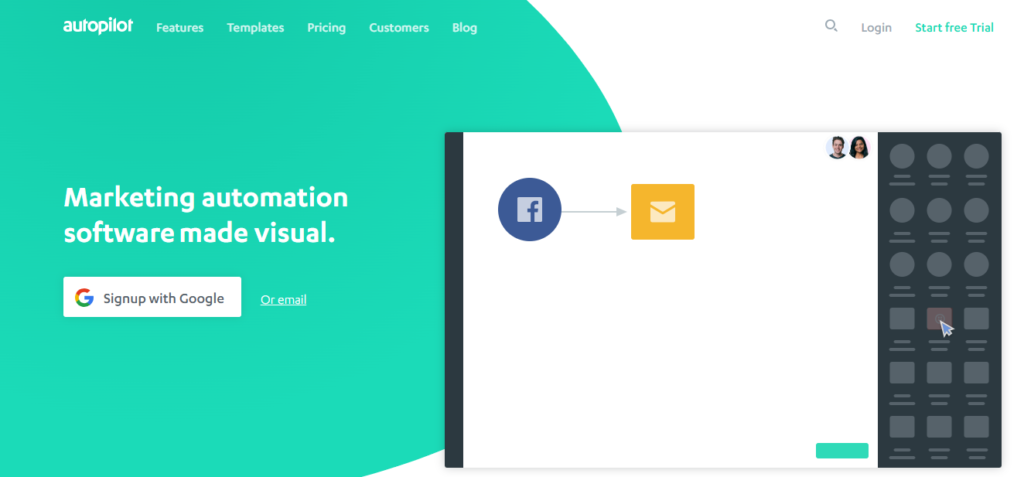
What makes Brandout the right partner for implementing digital marketing automation tools effectively?
Brandout offers complete digital marketing services, including email automation, social media management, content marketing, and CRM integration.
We help businesses implement the best automation tools, streamline processes, and optimize campaigns for maximum ROI.
Our expertise ensures your marketing runs efficiently and delivers measurable growth.
Final Thoughts
For businesses that want to remain competitive, adopting marketing automation has become essential rather than optional.
These tools help reduce manual work, improve accuracy, and make campaigns more data-driven.
Whether you need an all-in-one solution like HubSpot, a simple email tool like Mailchimp, or an enterprise-level system like Salesforce Marketing Cloud, the right choice depends on your business goals and budget.
Small businesses may prefer user-friendly and affordable tools, while large companies benefit from robust platforms with advanced features.
Embracing automation today means achieving faster growth, stronger brand presence, and more efficient marketing tomorrow.
Frequently Asked Questions:
1. How do I choose the right digital marketing automation tool for my business?
Selecting the appropriate tool relies on factors like your business scale, objectives, and available budget.
Look for features like email automation, social media scheduling, analytics, and integrations with your existing platforms.
2. Can small businesses benefit from digital marketing automation?
Yes, small businesses can greatly benefit. Automation saves time, reduces manual effort, and ensures consistent communication with customers without needing a large marketing team.
3. Do automation tools replace human marketers?
No, automation tools assist marketers by handling repetitive tasks. Human creativity and strategy are still essential for creating engaging content and setting the right goals.
4. Are digital marketing automation tools expensive?
The cost varies by tool and features. Many tools like Mailchimp or Buffer offer affordable plans for small businesses, while advanced platforms like HubSpot or Marketo cater to larger enterprises.

